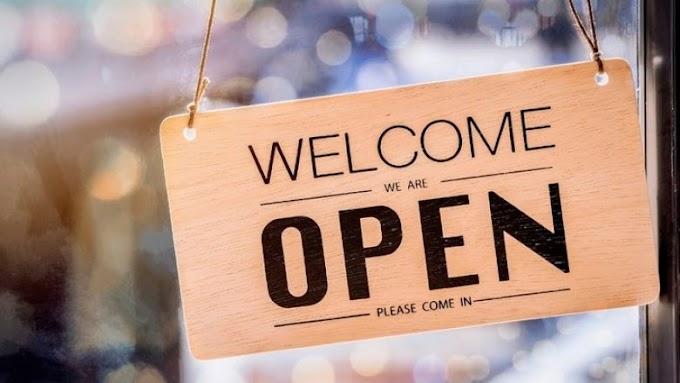This year started terribly bad for China. When the Wuhan respiratory virus spread, the Communist Party officials' instinct was to wait. Some predicted it could be China's "Chernobyl" - a reference to how the Kremlin's lies about a nuclear accident hastened the collapse of the Soviet Union.
But they were wrong. After initial hesitation, China's ruling party quickly established a quarantine with dizzying severity. The blockade seems to have worked. The number of new cases with covid-19 is low.
Factories in China are reopening. Researchers there have prepared candidate vaccines and are rushing to test them. Meanwhile, the official death toll in China has been surpassed by Britain, France, Spain, Italy and the United States.
China is seeing this as a triumph. An extensive propaganda campaign explains that China took control of the epidemic thanks to a strong unilateral response.
The country is now showing its goodwill, according to local propaganda, by supplying the world with medical equipment, including about 4 billion masks between March 1 and April 4. Its goal is to buy time while the rest of the world continues to be under attack. If some Western democracies are suffering, it shows how their system of government is inferior to China.
Some, including foreign policy observers in the West, have concluded that China will be the winner of this Covid-19 disaster. They warn that pandemics will be remembered not only as a human tragedy, but also as a geopolitical turning point for the loss of America. This thesis is partly relevant to the pre-election campaign.
President Donald Trump seems to have no interest in leading the global response to the virus. Previous US presidents campaigned against HIV and Ebola. Trump, on the other hand, has vowed to disband the WHO with the prejudicial claim that it acted pro-China. With such a White House leader claiming to have "absolute power" but saying "I do not take responsibility", China has a chance to improve its influence.
However, it is not surprising that China cannot succeed. No one can guarantee that China's record of covid-19 treatment was as impressive as it was claimed - it was actually no better than the data of competent democracies like South Korea or Taiwan.
Foreigners cannot control whether secret Chinese officials have been honest about the number of deaths from coronavirus. An authoritarian regime can tell factories to start working, but it cannot force consumers to buy their products.
Another drawback is that Chinese propaganda is often crude and ordinary. The words of Chinese officials do not simply praise their leaders; some take pleasure in America’s dysfunction or promote wild conspiracy theories, calling the virus an American biological weapon. But even rich countries have doubts about China.
More broadly, pandemics have fueled arguments that countries should not rely on China for basic goods and services, from fans to the 5G network. The WTO expects global trade in goods to shrink by 13-32% in the short term. If this turns into a long-term withdrawal from globalization, it will hurt China as well.
But other countries want to see China as America's partner rather than rival. Of course, China is not ready to reproduce America’s strengths: a vast network of alliances and legions of powerful global private actors, from Google and Netflix to Harvard and the Gates Foundation. There is no sign that he wants some kind of leadership, as the US did after L2B.
However, a test of China's ambitions will be the way it handles the vaccine race. If it succeeds in doing so, success can be used as a national triumph and a platform for global cooperation. Another test is debt relief for poor countries.
On April 15, the G20, including China, agreed to suspend debt payments for eight months. China has accumulated large bilateral debts to ensure political influence. If the G20 decision means that the government in Beijing is now willing to coordinate with other creditors and be generous, that is a sign that it is willing to spend money to take on a new role.
However, perhaps China is less interested in running the world than in making sure that other powers do not dare to destroy it. China’s leaders combine great ambitions with a natural care from the great responsibility they have for governing a country with 1.4 billion people. They do not need to create a new international order regulated from scratch. They may prefer to continue to put pressure on the US-built order after L2B, so that growing China is not limited.
This is not a comforting prospect.The best way to treat pandemics and its economic consequences is to act globally. Also for problems like organized crime and climate change.
The 1920s have shown what happens when the great powers return selfishly and rush to take advantage of the problems of others. The spread of Covid-19 so far has aroused many appetites for advantage and Mr. Trump’s actions are very much to blame for this. For China to have the same vision of superpower would not be a triumph but a tragedy.
Pageviews past week
Created By eaadhar | Distributed By Blogger Themes




0 Comments